Question And Answer
Publications
Articles, publications, books, tools and multimedia features from the U.S. Institute of Peace provide the latest news, analysis, research findings, practitioner guides and reports, all related to the conflict zones and issues that are at the center of the Institute’s work to prevent and reduce violent conflict.
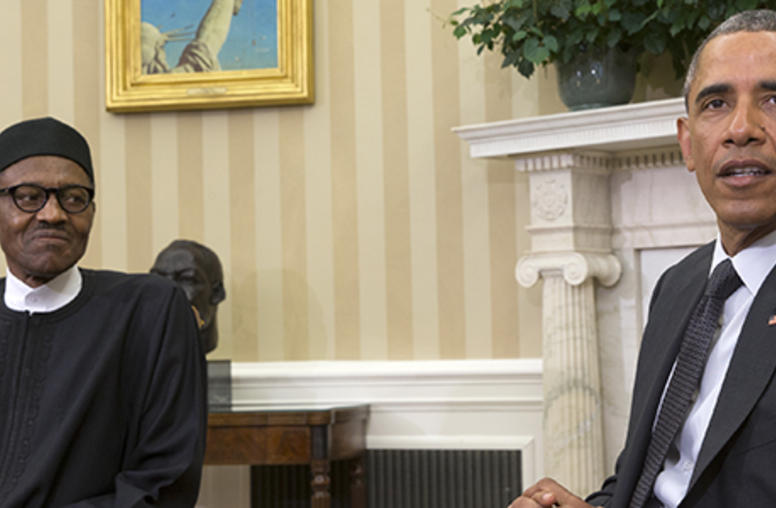
Obama, in Africa, Will Need to Balance Agenda, Ex-Envoys Say
Six years after Barack Obama first visited sub-Saharan Africa as a presidential messenger of democracy, he faces a more complicated task in turning back to the continent next week. Obama hosts Nigeria’s new president, Muhammadu Buhari, on July 20, and then flies to Kenya and Ethiopia. As he does, the continent’s security threats and its urgent need to address ongoing poverty are forcing him to balance priorities and messages, say two former assistant secretaries of state now at the U.S. Insti...
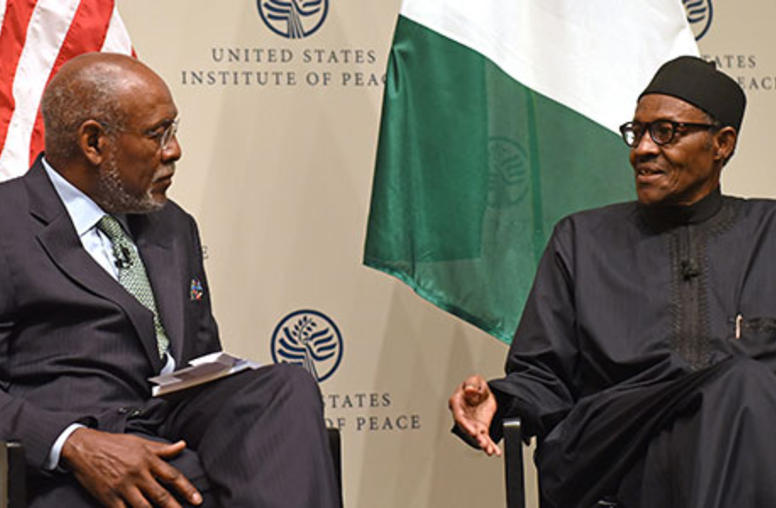
Nigeria's Buhari Presses for Military Aid, Pledges 'Zero Tolerance' for Corruption
Nigerian President Muhammadu Buhari said his new government will “do what it takes” to defeat the extremist violence of Boko Haram, and he bluntly called on the U.S. to ease its restrictions on providing the weapons that his military needs to prevail in the fight. In an address at the U.S. Institute of Peace today, he also reaffirmed “zero tolerance” for corruption and pledged to restore trust in the country’s governance.
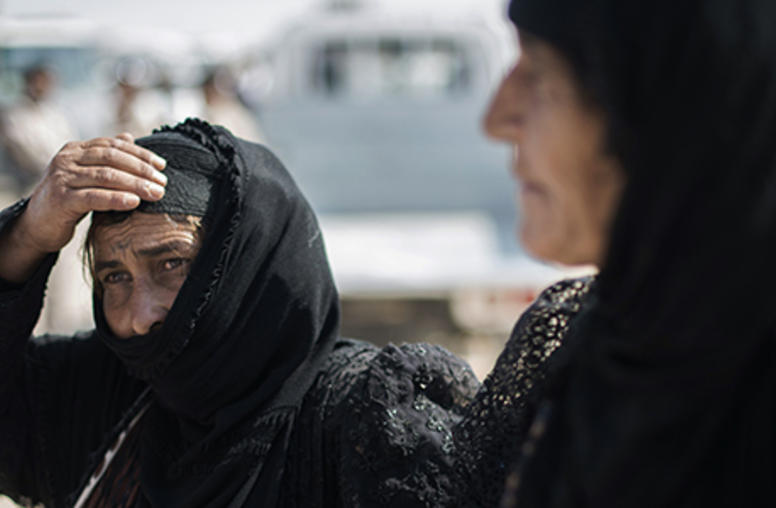
Women and Violent Extremism: A Growing Threat Demands Concerted Action
The extremist organization ISIS manipulates gender dynamics far better than its opponents often understand. It recruits young men with promises of control over women and uses mass rape as a form of cohesion. At the same time, it lures isolated women with appeals to enlarge their lives by joining a cause. Policymakers seeking to address the role of women in countering violent extremism must take an equally layered, multi-pronged approach to gender, according to experts from government, the Uni...
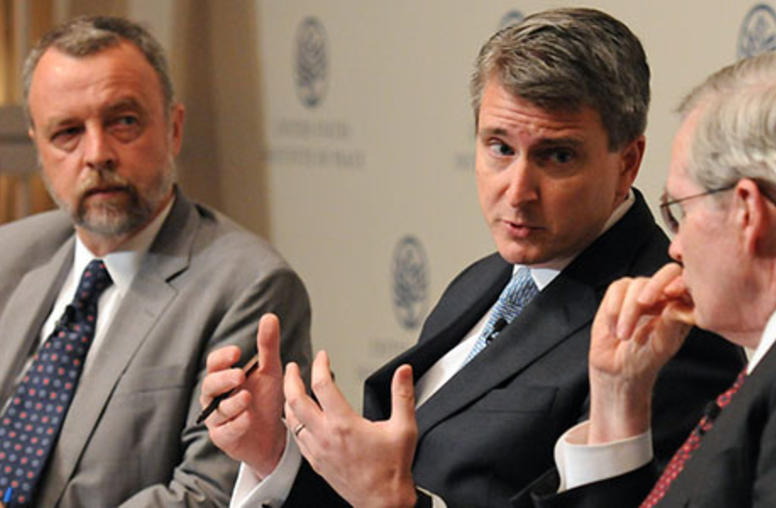
U.S. Envoy Feldman Urges Continued Support to Solidify Afghan Gains
The U.S. can’t assess yet the precise impact the confirmed death of Taliban leader Mullah Omar will have on the group’s talks with the Afghan government, but officials do believe the insurgency faces a more stable and united administration than at any time in the past six years, according to Dan Feldman, the outgoing U.S. special representative for Afghanistan and Pakistan.
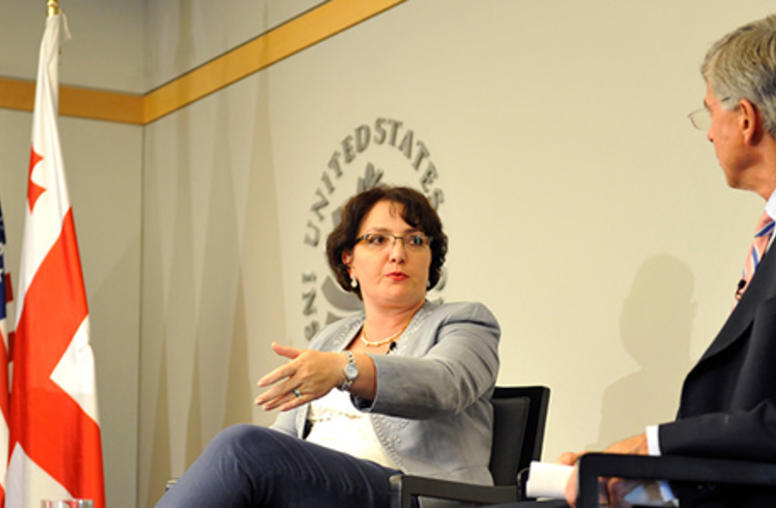
Georgia, Facing Russian Pressure, Needs NATO Path, Defense Chief Says
Even as hostilities continue in Ukraine, Russia is trying to undermine Georgia’s sovereignty with a multi-prong campaign that may not include a direct military confrontation yet poses a significant threat, according to Georgian Defense Minister Tina Khidasheli.
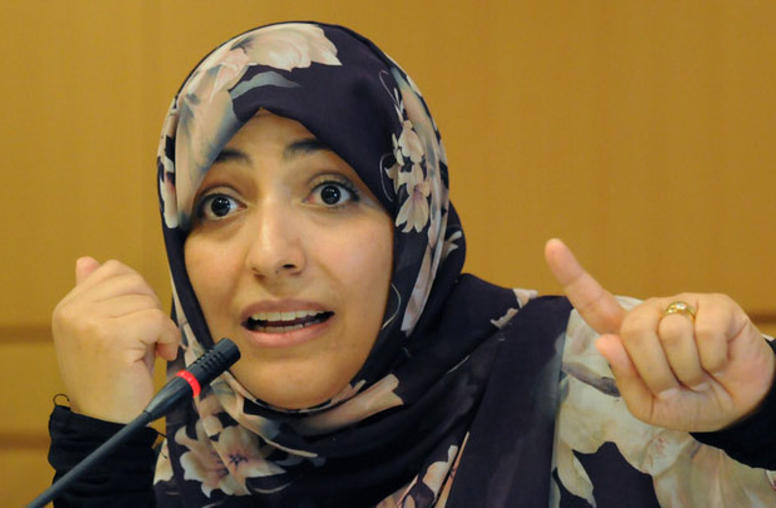
Halting Yemen’s War: U.S. Must Lead, Nobel Peace Laureate Says
Tawakkol Karman, the Yemeni human rights activist who won the Nobel Peace Prize in 2011, called on the United States to assume a bigger role in trying to revive a political process that might end the war now tearing her country apart. She urged the U.S. government to lead in pressing for a cease-fire and the transformation of Yemen’s militias into political parties.
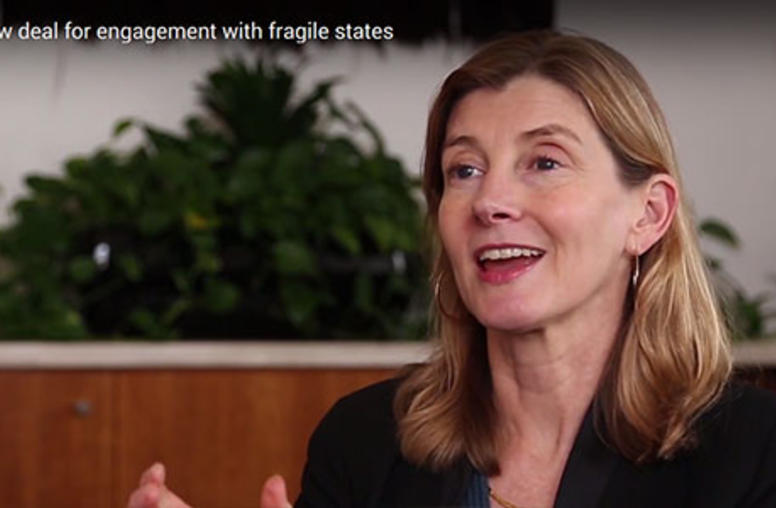
Nancy Lindborg: Finding common ground for development and defense
Development, diplomacy and defense must work together to help shepherd countries from fragility to peace and democracy. Nancy Lindborg shares her thoughts on bringing together the "three D's" for more effective crisis response.
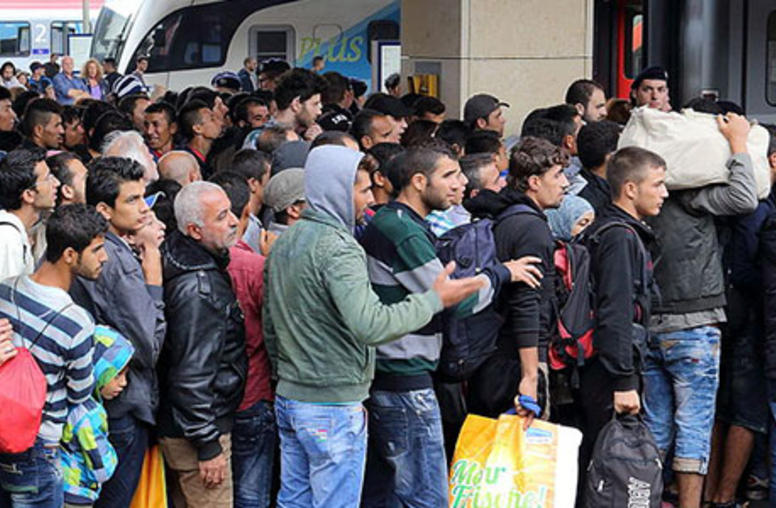
Stopping Europe’s Refugee Crisis at the Source
To halt the flow of people fleeing war, poverty, and oppression, the international community needs to redouble aid efforts where they're needed most.

Nancy Lindborg Statement on the International Day of Peace
In 1981 the United Nations set aside September 21 as the International Day of Peace, dedicating the day to nonviolence across the globe. In the decades since, the world has emerged from a cold war, confronted ethnic conflict and witnessed protests evolve into revolution.
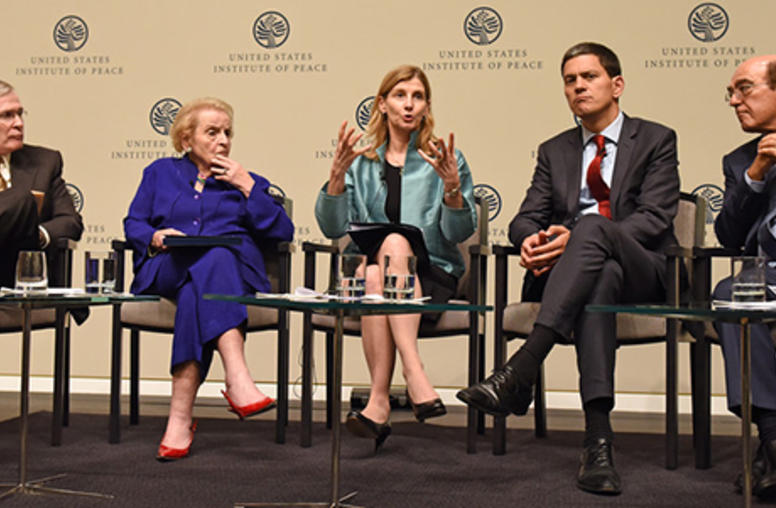
Europe’s Refugee Flood Shows Urgent Need for Action on Middle East
Former Secretary of State Madeleine Albright and former National Security Advisor Stephen J. Hadley joined U.S. Institute of Peace President Nancy Lindborg, a U.K. foreign secretary-turned humanitarian advocate and other experts in calling for U.S., European and other world leaders to accelerate assistance to refugees in the Middle East and reinvigorate efforts to end the conflicts that drive them out of their homes in the first place.